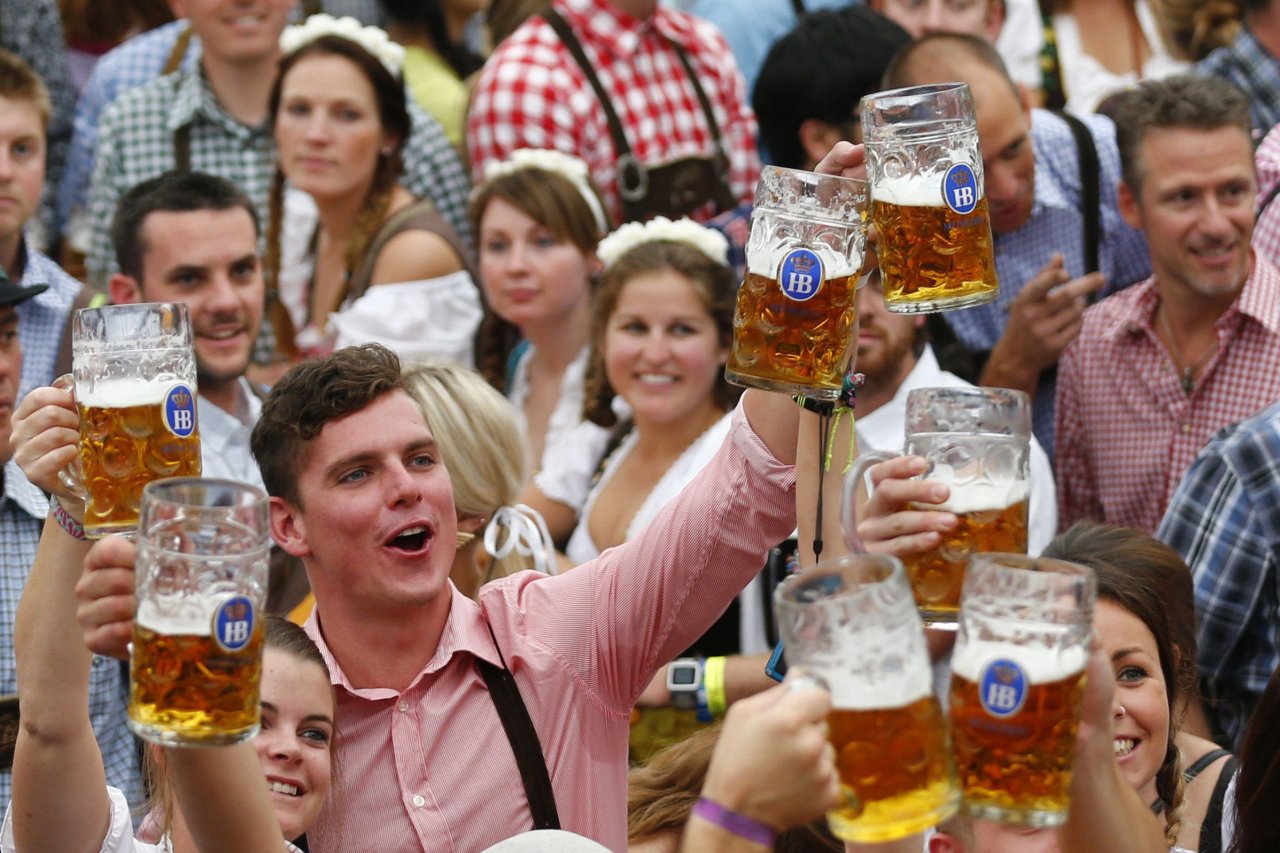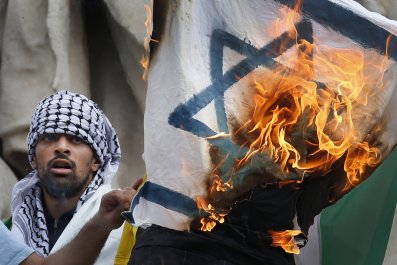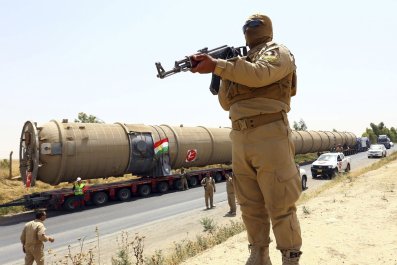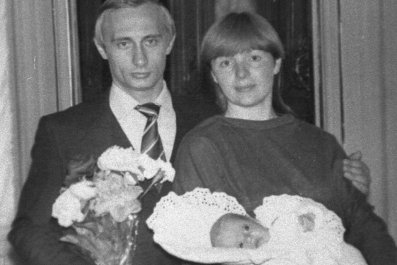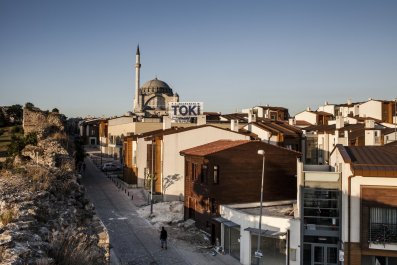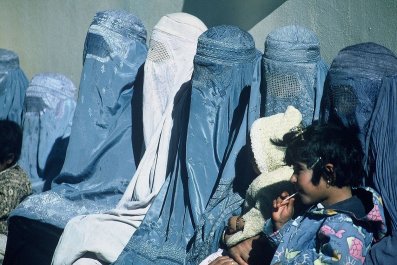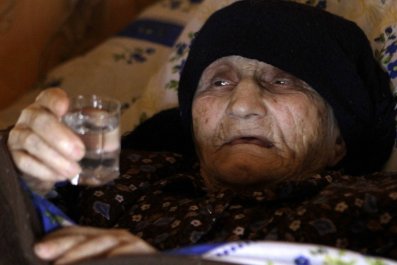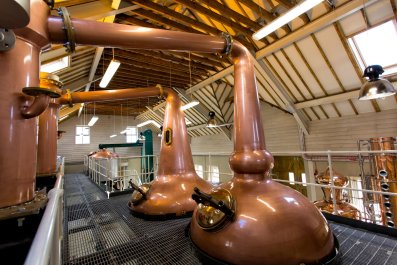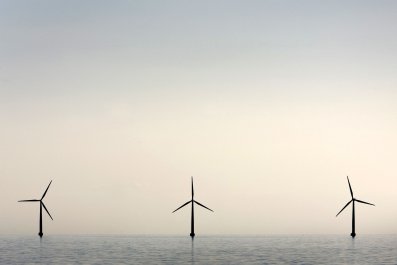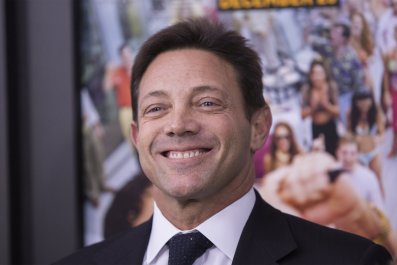Shortly before opening time at Foersters Feine Biere in Berlin, the owner, Sven Foerster, is busy checking the pressure on the pumps and the temperature of the refrigerated cabinets where liquid gold is stored. Foerster is a qualified beer sommelier, a man devoted to the preservation of humankind's favourite alcoholic brew, proud in the knowledge that he's a small part of a vast German brewing industry. Yet something is clouding that security. He and thousands of others are concerned the country's energy needs and the introduction of fracking will collide with the business of producing some of the best beers in the world.
"Don't talk to me about fracking," he says, surrounded by a treasure trove of boutique Bavarian, Franconian and Düsseldorf beverages. "Beer is a craft that we Germans have learned well, but it relies on nature to provide the products. Hops, barley malt, yeast and, most important of all, water. Poison the well and you poison the product. Our beer is part of our life, our national soul."
Despite German environment minister Barbara Hendricks' recent reassurances that most forms of hydraulic fracking will be prohibited until 2021, Germany's 1,300 brewers worry a long campaign lies ahead of them. Hendricks' declaration came after pressure from the German Brewers Federation – representing both craft breweries and global players including Becks and Warsteiner – had applied pressure on the government, concerned about the toxic chemicals used in the process of fracking.
Energy experts, including the German EU energy commissioner Günther Oettinger, argue that Germany should keep its options open on fracking when EU states such as Britain and Poland appear willing to exploit shale gas, estimating that the process could secure a tenth of the country's needs and reduce energy imports, particularly from Russia.
Germany is believed to sit on enough shale gas "to boost the current output of natural gas 100-fold," according to Volker Steinbach of the Federal Institute for Geosciences and Natural Resources. Fracking could potentially generate billions in income and savings at a time when Germans are now paying the most for electricity in mainland Europe, but an Ernst & Young report in 2011 showed the government receives more than €1.2 billion annually in tax revenues on beer and employs hundreds of thousands directly and in related businesses.
Energy companies are keen to get at the estimated two trillion cubic metres-plus of natural gas trapped below Germany – it lies beneath 80% of the country's landmass. They are lobbying hard, and Chancellor Angela Merkel is sympathetic, last year saying a successful drilling campaign would "redraw the energy map across Europe; we would no longer be a continent reliant on Russia for about a quarter of our gas". The concerns of the brewers opposing them are shared by the general population, two-thirds of whom oppose fracking, according to the results of a May 2013 Emnid polling institute survey.
Berlin's environment ministry has assured brewers that the Reinheitsgebot is safe. Dating back to 1516, this German Beer Purity Law dictates that beer can only be made with clean water, barley and hops. Nonetheless, the German government said on July 4th that it would initiate "scientifically supervised exploratory measures" over the next six years to gather evidence on the impact of fracking on the environment, adding that it would be banned in areas where drinking water is obtained.
Merkel is reportedly planning to draw up fracking guidelines with her cabinet after the government's summer recess. The brewers remain sceptical. "The amendments provided so far by the federal government are not sufficient to ensure the necessary security for the supply of drinking water and to take account of the requirements for the purity law for beer," says a spokesman for the German Brewers Federation.
The battle is already spilling over borders. The state of North Rhine-Westphalia is Germany's most populous and industrialised region. Steel mills, car plants and coal mines once fuelled a post-war economic miracle – and produced the beer that slaked the thirst of the workers. Though most heavy industry has now gone, sparkling pilsners, murky Kellerbiers, the magnificent Altbiers of Düsseldorf and the famous, tangy Kölsch of Cologne are under threat, say the anti-frackers, from a drilling project in the neighbouring Netherlands.
The Netherlands put the brakes on fracking for years but wants them to come off from 2015. "Shale gas must come into our energy considerations," said Dutch prime minister Mark Rutte at The Hague a year ago, triggering fears of test drilling and fracking poisoning the water sources of Germany.
MP Hubertus Zdebel of the hard-left Die Linke party is calling for cross-border protests because "fracking is dangerous and irresponsible. It is not sufficient to impose a moratorium on fracking just in North Rhine-Westphalia; it must also be so in the Netherlands. Fracking should be prohibited in both countries."
To date there has only been one test drilling carried out by ExxonMobil in 2011 into shale rock in a field near Lünne, Lower Saxony. The local brewery is among those still concerned this could be the first of many.
"Fracking could be the beginning of the end of our existence," says Friederike Borchert whose family brewing business produces more than 800,000 litres of beer a year. While the government has yet to declare its agenda on fracking after the summer, the brewers and their supporters are not letting up. The propaganda war is raging intensely online as well as in the backrooms of the corridors of power.
Back at Foersters Feine Biere, Foerster, who is a retailer and not part of the brewing industry lobby, says: "There is an old story about Karl Marx once saying that the communist revolution would either happen in Britain or Germany, the two most industrialised nations of the time. Lenin is later purported to have said, 'The revolution will never happen in Germany because if the people were ordered to storm a railway station, they would all stop to buy a platform ticket first.' But push us on our beer and you will see us at the barricades, I guarantee it."



